The content of the article
When the pet is bad, the owner tries to help him in all ways. And if the emergency call of the veterinarian to the house is far from affordable for everyone, then there is always a first-aid kit in the house. Among the drugs that are intended for people, there are those that can be given to animals. The difference is only in the dosage, because the cat is much smaller than a man. One of the drugs that are suitable for the treatment of four-legged friends is activated charcoal.
Poisoning and activated carbon
About feline curiosity knowingly invented a saying. Kittens are interested in everything they see around, they all want to try for a tooth. With age, animals gain experience and learn to avoid the danger, but even an adult pet may decide that a tasty or unusually smelling object is completely edible. Therefore, almost any cat can get poisoned.Poisons in the form of a liquid or powder can get on the coat, and the cat will lick them while washing. A cat can eat a rodent, which was poisoned by a special compound. It is important to take action immediately and give a safe and affordable product.
Coal absorbs well, absorbs toxic substances. It is not absorbed by the body and leaves the digestive tract, taking with it poisonous components. It has the same effect on the human and feline organism. You can give it to cats of all ages, as well as pregnant and lactating.
Signs of poisoning
There are several symptoms that are characteristic of poisoning:
- weakness;
- excessive salivation;
- frequent liquid and watery stools;
- trembling limbs and whole body;
- cough;
- vomiting;
- intermittent or heavy breathing;
- bleeding in feces;
- convulsions;
- disorientation in space;
- pain in the abdomen (when probing);
- loss of consciousness.
If several symptoms are present, you can give the medicine without a doubt. Some symptoms are found in other diseases, such as intestinal infections and digestive disorders,but activated carbon, even in this case, will not be harmful, since it also adsorbs pathogenic bacteria and food components.
Diseases in which it is important to give activated carbon to the cat
Black tablets will help with food allergies, increased flatulence in the intestines, diarrhea after taking anthelmintic drugs and reduce the high acidity of gastric juice.
Amount of drug
How to give a pill
The pet can choke with a whole tablet, so it should be divided into smaller pieces. A kitten is better to give a quarter, and an adult pet half or a third. All procedures are best done with someone else’s help, so that one person holds the animal and the other treats it.You need to open the cat's mouth and put the medicine closer to the root of the tongue, then close the mouth and lift the face. Then wait until the pet swallows the pill, it will be noticeable by the movement of the muscles in the neck. You can look into the cat's mouth to make sure the medicine is swallowed: it happens that the animals move the pill by the cheek or closer to the tip of the tongue, then the procedure must be repeated.
How to water a cat
During poisoning, animals can drink water in large quantities, because it tells them instinct. But sometimes sick cats lose interest even in water, and after taking the medicine, they may begin to be suspicious of any human suggestion. Then you need to drink the patient by force, using a syringe. A kitten will be enough for half a milliliter, and an adult needs to pour in 1-2.
It is necessary to close the animal's mouth and finger with a finger, put a syringe with water without a needle into the resulting gap and gently inject a small amount of drink by the cheek. The trickle should not be too strong or too weak. Then you need to slightly raise the head of the animal up and wait until it swallows water. Then repeat to the cat drank in several receptions.
How to avoid overdose
Too much activated carbon can harm the health of your pet as much as food poisoning. The adsorbent acts indiscriminately, it absorbs everything, including water and mucus inside the stomach and intestines. This can lead to dehydration, which causes constipation. Toxins do not leave the body, and this only exacerbates the situation.
How to understand what happened overdose:
- The feces go away with difficulty, in small quantities, it is too dry.
- Feces do not come out at all, although the cat diligently makes an effort.
- The cat does not allow to touch the stomach, because it hurts.
- Hard lumps are groped around the intestines.
- The skin loses its elasticity. This is a result of dehydration, it is especially noticeable when, after pulling off the skin on the withers, the fold is smoothed more slowly than usual.
To avoid this, you need to feed the animal with water, not milk or kefir. After poisoning, the cat should drink at least a glass of pure water (250 ml) per day, and each tablet of activated carbon should have at least 10 ml.You can remove the coal that has lingered in the intestines, thanks to the use of enveloping drugs and laxatives. Prescribe additional treatment should only a doctor.
When coal doesn't help
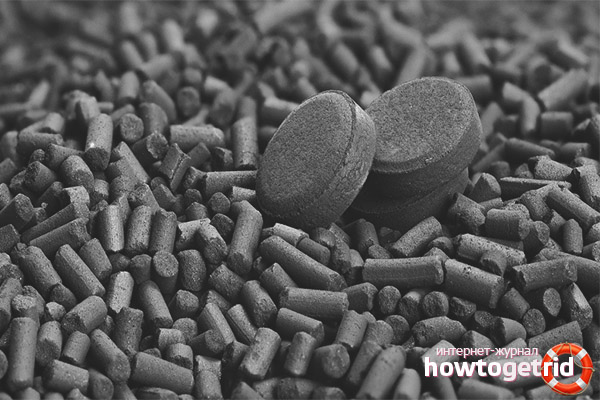
Tablets only enter the digestive tract and act exclusively in it. If the symptoms are recognized correctly, and toxic substances have not yet entered the blood, coal will ease the animal's condition and reduce its suffering, while the owner is taking the patient to the veterinary clinic. When too much time is lost, the coal has nothing to absorb in the stomach and intestines: the poisons are already in the blood, you need the help of a specialist. An adsorbent may also be useless when biting poisonous insects.
Cat self-medication
Animals that freely roam the street can be treated on the go. As soon as they feel unwell, they begin to eat grass, and then belch what they have in their stomachs. For a domestic cat, you can grow grass in a pot, because the instincts work not only outside housing. It should be borne in mind that there are more dangers outside, the probability of stumbling on poison is much higher, so it’s best to still watch the pet carefully, even if it is sufficiently independent.
What else do you need to know
- It is necessary to find out exactly what the cat poisoned: it depends on how it will be treated.
- Coal absorbs everything, even drugs. Therefore it is worth giving it separately from other prescribed drugs.
- You can not delay a visit to the clinic. Improving well-being can be temporary, because not only the intestines suffer from poisoning. The greatest impact is on the liver, which removes toxins from the blood. It requires an individually selected treatment regimen and a diet that only a veterinarian will prescribe.
- If the doctor has warned about the danger of taking activated carbon, it is better not to treat the animal on its own.
- If the poisoning is severe, coal may be useless. A veterinarian can prescribe injections and droppers with special solutions that will perfectly cope with the task.
When you can not give coal
Even this harmless drug has contraindications:
- Ulcers of the stomach and intestines.
- Internal bleeding.
- Chronic kidney disease.
- Diabetes.
- Need to take other medications. Coal reduces their concentration and the effectiveness of treatment in general.
Activated carbon is not a panacea, it only removes poisons from the intestines and stomach, eliminates one symptom - diarrhea, and its causes may be different. This medicine cannot cure the underlying disease. It also should not be given as a preventive measure.
The drug is available in different forms, in the form of powder, suspension, capsules and pastes, so do not be upset if the cat spits out the tablet time after time. The main thing is to comply with the dosage, to give the cat water and not to neglect the visit to the doctor.
Video: how to give a cat a tablet?

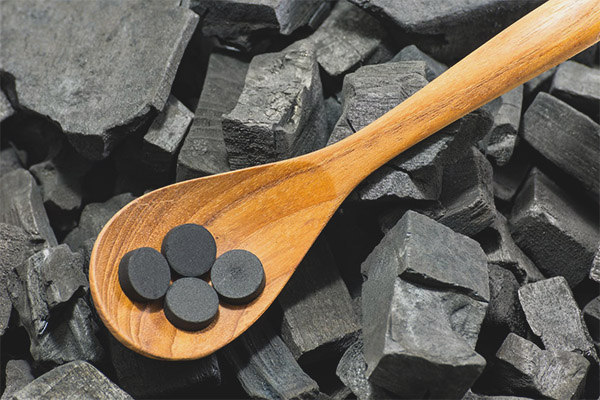

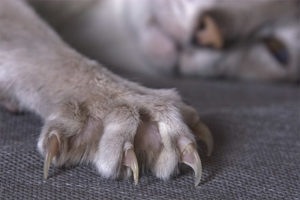
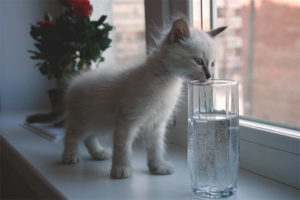
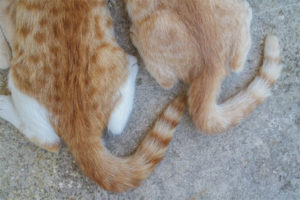

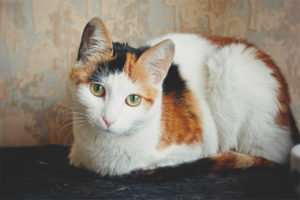
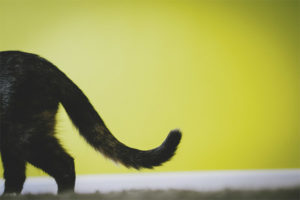
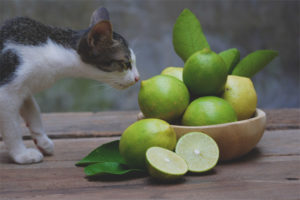

To send